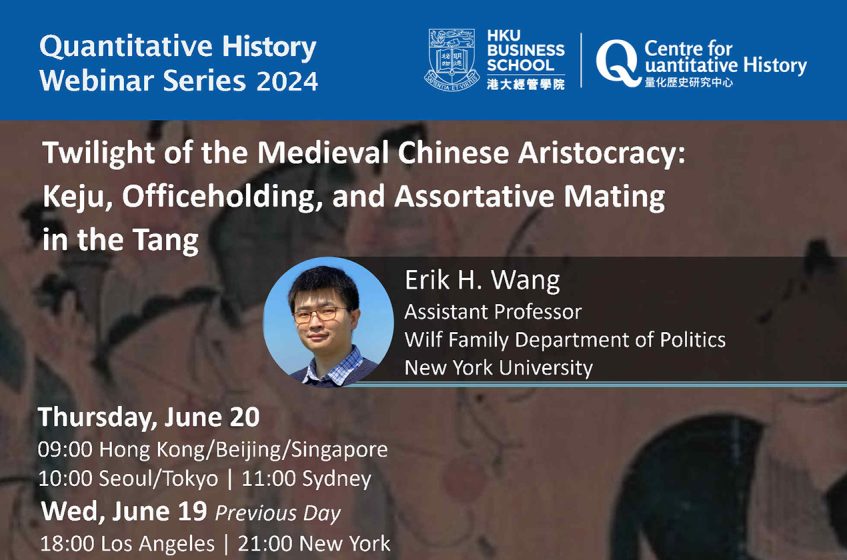
Twilight of the Medieval Chinese Aristocracy: Keju, Officeholding, and Assortative Mating in the Tang
Twilight of the Medieval Chinese Aristocracy: Keju, Officeholding, and Assortative Mating in the Tang
Data from the distant past provide fertile ground for testing social science theories of education and social mobility. Erik H. Wang of the New York University and his team constructed a dataset from 3,640 tomb epitaphs of males in China’s Tang Dynasty (618–907 CE), containing detailed information about ancestral origins, family background, and career histories of the deceased elites. Their statistical analysis yields evidence of a transition away from an aristocratic society in three key trends: 1) family pedigree mattered less for career achievement over time, 2) passing the Imperial Examination (Keju) became an increasingly important predictor of one’s career achievement, and 3) father’s position always mattered throughout the Tang, especially for men who did not pass the Keju. Erik and his team’s findings cast doubt on historical studies portraying the medieval Chinese aristocracy as self-perpetuating during this era. These works appear to “select on the dependent variable” when analyzing biographical data.
During this Quantitative History Webinar, Erik will present models that correct for the biases incurred in these studies. The new findings reaffirm earlier, classic works that suggested a chronic decline of the aristocracy via the rise of Keju. The aristocracy’s advantage in officeholding had already been in clear decline long before the wars and upheavals of the late 9th and early 10th centuries that allegedly ended the aristocracy. The twilight of medieval Chinese aristocracy, according to the data, began in as early as the mid-seventh century CE. The advantage of ancient great houses gradually vanished and individuals’ educational achievement became increasingly important for their career success. Erik will also discuss new results on Keju and assortative mating among the Tang elites.
Discussant: Javier Cha, Assistant Professor of Digital Humanities, HKU Department of History
Live on Zoom on Thursday, June 20, 2024
09:00 Hong Kong/Beijing/Singapore
10:00 Seoul/Tokyo | 11:00 Sydney
Previous Day 18:00 Los Angeles | 21:00 New York on Wednesday, June 19 | Click here to view your local time
The Quantitative History (QH) Webinar Series aims to provide researchers, teachers, and students with an online intellectual platform to keep up to date with the latest research in the field, promoting the dissemination of research findings and interdisciplinary use of quantitative methods in historical research. The QH Webinar Series, now entering its fourth year, is co-organized by Centre for Quantitative History at the HKU Business School and International Society for Quantitative History in partnership with Hong Kong Institute for the Humanities and Social Sciences. The Series is now substantially supported by the Areas of Excellence (AoE) Scheme from the Research Grants Council of the Hong Kong Special Administrative Region, China (Project No. [AoE/B-704/22-R]). 量化歷史網上講座系列由香港大學陳志武和馬馳騁教授聯合發起,旨在介紹前沿量化歷史研究成果、促進同仁交流,推廣量化方法在歷史研究中的應用。本系列講座由香港大學經管學院量化歷史研究中心和國際量化歷史學會承辦,及香港人文社會研究所全力支持。從2023年開始,系列得到中國香港特別行政區研究資助局卓越學科領域計劃的重要資助 (項目編號[AoE/B-704/22-R])。
Conveners:
Zhiwu Chen
Chicheng Ma










